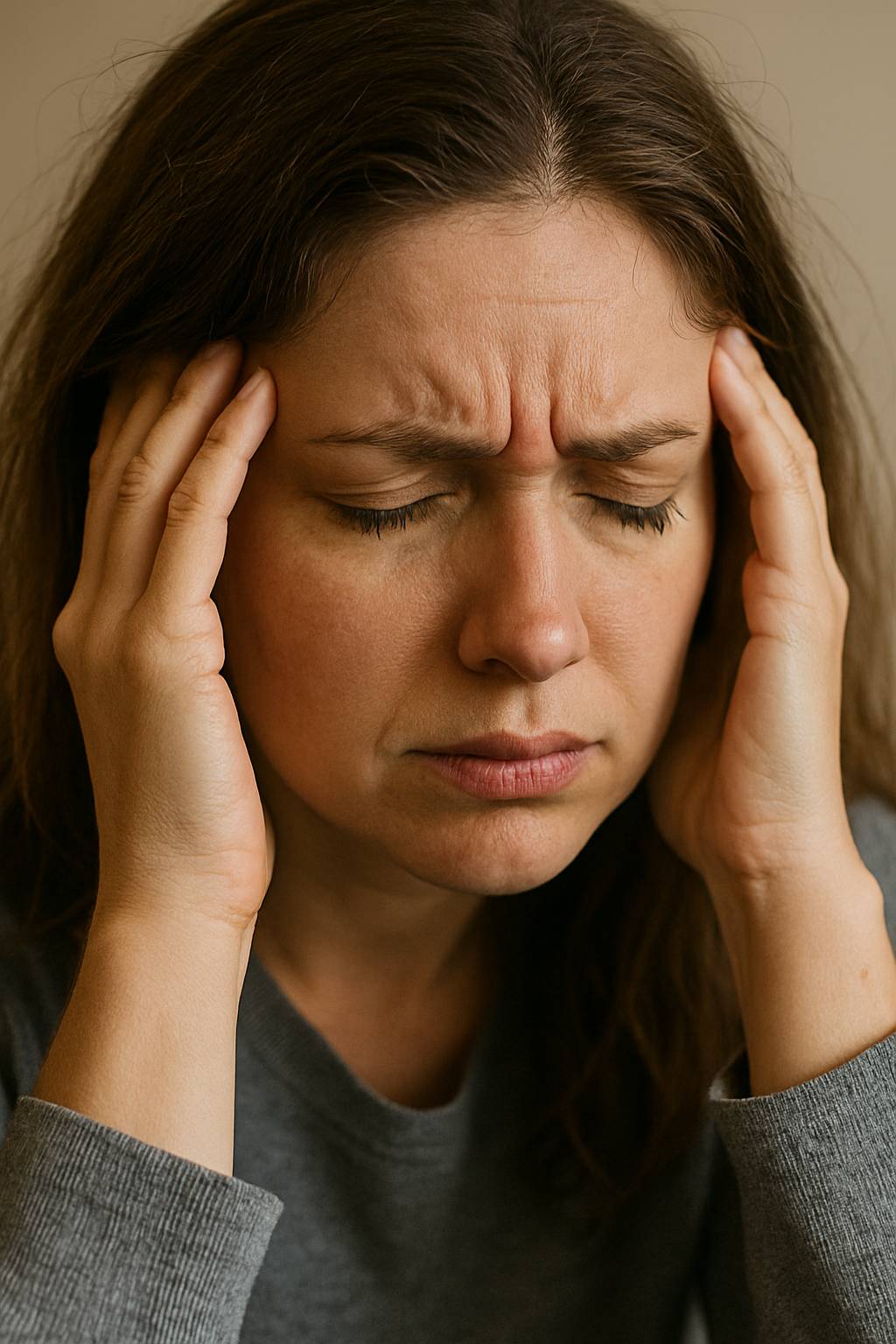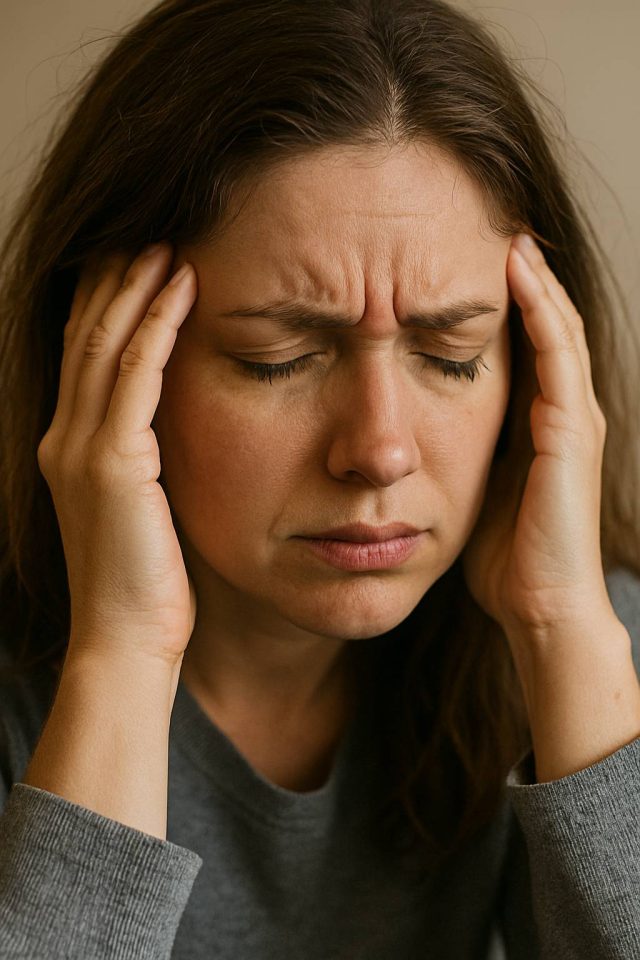
Have you ever felt your heart race before a big meeting or your stomach twist before making an important decision? Occasional worry is normal, but for millions of people, these responses are part of a broader issue: anxiety. Recognizing anxiety symptoms early can help prevent them from taking over your daily life.
In this article, we’ll explore what anxiety feels like, how it affects both the mind and body, and what you can do to manage it effectively.
Table of Contents
- What Are the Key Anxiety Symptoms?
- Physical vs. Emotional Manifestations
- Triggers and Risk Factors to Watch For
- When and How to Seek Help
- Conclusion and FAQs
What Are the Key Anxiety Symptoms?
Anxiety can show up in subtle ways or hit like a wave. While the experience is unique to each person, there are several symptoms commonly associated with anxiety disorders.
Persistent worry, restlessness, and difficulty concentrating often top the list. People with anxiety may feel constantly on edge, even without an obvious cause. In fact, a study from the National Institute of Mental Health (NIMH) found that over 30% of adults will experience an anxiety disorder at some point in their lives.
Other symptoms may include irritability, a sense of impending doom, or a heightened startle response. These mental and emotional states often make daily activities difficult to complete. Additionally, anxiety can disrupt sleep and lead to chronic fatigue.
Some individuals may also experience social withdrawal, which compounds feelings of loneliness. Recognizing these anxiety symptoms early is the first step toward reclaiming your well-being.
Physical vs. Emotional Manifestations
Anxiety doesn’t just stay in your head—it affects your entire body. For many, it triggers physical reactions that mimic other health conditions, often leading to unnecessary medical tests before an accurate diagnosis is made.
Subheading: Physical Symptoms
Common physical anxiety symptoms include a racing heart, sweating, shortness of breath, and muscle tension. Gastrointestinal issues such as nausea, cramping, or diarrhea are also frequent. These physical manifestations can make anxiety feel like a heart attack or a serious digestive disorder.
Subheading: Emotional Symptoms
On the emotional side, individuals may experience overwhelming fear or dread. Even when no immediate danger is present, the brain remains in a fight-or-flight state. This can result in chronic stress, which further worsens physical health over time.
Because these symptoms are so varied, they are often misunderstood. For resources and personal stories on managing emotional distress, Health.HealingWell.com offers peer-shared experiences and forums that provide comfort and validation.
Triggers and Risk Factors to Watch For
Although anxiety symptoms can appear without warning, they often follow certain triggers. Understanding what prompts anxiety in your life allows for better planning and coping.
Common triggers include work stress, relationship conflict, trauma, chronic illness, and financial strain. In some cases, even caffeine or certain medications can intensify anxiety. Genetic predisposition also plays a role, meaning anxiety disorders may run in families.
Subheading: Lifestyle Factors and Co-conditions
People with other health issues, such as irritable bowel syndrome (IBS) or autoimmune disorders, may also experience heightened anxiety. Additionally, lack of sleep, poor diet, and sedentary lifestyles can increase vulnerability.
It helps to maintain a daily log of your activities, emotions, and physical symptoms. This makes it easier to connect the dots between your environment and episodes of anxiety. When you understand your risk factors, you can take steps to reduce exposure and implement protective habits.
When and How to Seek Help
While everyone experiences anxiety from time to time, chronic or intense symptoms should not be ignored. If anxiety symptoms are interfering with your ability to function or enjoy life, it’s time to seek support.
Therapies such as Cognitive Behavioral Therapy (CBT) have proven effective for many individuals. Medications like Lexapro, Zoloft, and Buspar are also prescribed to help regulate mood and physiological responses. In combination with therapy, they can significantly improve quality of life.
If you’re unsure where to start, Healthcare.pro offers a network of providers specializing in mental health. Early intervention often leads to quicker relief and better long-term outcomes.
Subheading: Natural and Complementary Options
Many people also find relief through practices like yoga, meditation, and mindfulness-based stress reduction (MBSR). Supplements such as magnesium or L-theanine may provide benefit, though always consult with a professional before adding these to your routine.
Engaging with supportive communities, like those found on Health.HealingWell.com, can ease the isolation often linked to anxiety. These spaces offer both empathy and practical advice.
Conclusion
Anxiety symptoms can be complex, affecting both body and mind. However, they are manageable with the right tools and support. From identifying triggers to seeking professional help or adopting lifestyle changes, there are many paths to finding relief.
The earlier you act, the easier it becomes to regain a sense of balance and control in your life.
FAQs
What are the most common anxiety symptoms?
They include restlessness, fatigue, rapid heartbeat, nausea, and persistent worry.
Can physical symptoms of anxiety mimic other illnesses?
Yes. Symptoms like chest pain or dizziness are often confused with heart or digestive problems.
When should I see a doctor about anxiety?
If symptoms interfere with daily functioning or cause significant distress, professional help is recommended.
Are medications always needed for anxiety?
Not always. Many people benefit from therapy, lifestyle changes, or natural remedies alone or in combination.
Is it possible to recover from anxiety disorders?
Yes. With proper treatment and support, most people see significant improvement.
This content is not medical advice. For any health issues, always consult a healthcare professional. In an emergency, call 911 or your local emergency services.




